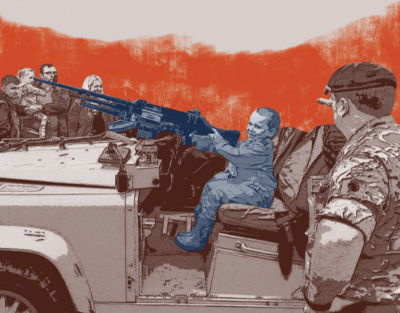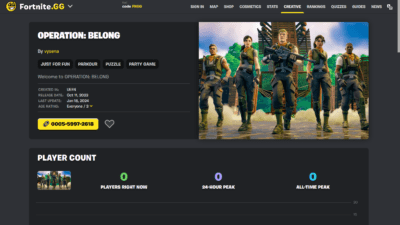Why are education projects run by ex-services being prioritised?
ForcesWatch comment
ForcesWatch has a number of concerns about the military-led 'alternative provision' being developed in schools: who benefits? the armed forces certainly will; military-led 'alternative provision' targets young people seen to be 'failing' - precisely those who need more options and, if channelled into the forces, are most at risk in warfare; the policy is based on limited evidence and ideological assumptions; will there be space for ethical issues around conflict to be addressed?
On 15 November 2013, the Department for Education announced “£4.8 million to projects led by ex-armed forces personnel to tackle underachievement by disengaged pupils“.
ForcesWatch has a number of concerns about the military-led ‘alternative provision’ being developed in schools: who benefits? the armed forces certainly will; military-led ‘alternative provision’ targets young people seen to be ‘failing’ – precisely those who need more options and, if channelled into the forces, are most at risk in warfare; the policy is based on limited evidence and ideological assumptions; will there be space for ethical issues around conflict to be addressed?
The projects that have received extra funding are for pupils who are ‘disengaged/at risk of becoming disengaged’, and are one of a number of schemes in the Department for Education’s Military Ethos in Schools in England programme. Other schemes include fast-tracking ex-forces (including non-graduates) into the teaching profession under the Troops to Teachers programme, the expansion of the Combined Cadet Force units in state schools, and the encouragement of the development of military academies and free schools sponsored by part of the military.
Who benefits?
One of the background documents used to develop the ‘military ethos’ policy identifies three main benefits of introducing more military-led provision in schools: ex-forces would benefit from more employment opportunities, the reserve forces would benefit from more recruits and young people would benefit as the provision would ‘generate hope and purpose’ and keep them out of trouble. Another document, looking at the Troops to Teachers scheme, also cites employment opportunities and mentions an increase in support for the armed forces as key benefits.
It is also instructive to look more widely at the reasons why the armed forces find it useful to be involved in education. The Ministry of Defence states that its ‘youth engagement’ work has two ‘defence’ outcomes – recruitment and raising positive awareness about the Armed Forces – and that some of it ‘engagement’ with schools, such as cadets, also ties in with governments concerns about social and personal development. The armed forces already make around 11,000 visits to schools and colleges each year – schools provide a ready catchment of young people and a learning environment in which messages designed to promote a positive awareness about the military are validated, away from parents, and other ‘gatekeepers’.
Is education an appropriate place for these other agendas to be given space? With the much publicised Reserves recruitment crisis, it is unlikely that young people involved in these military-led activities will not be seen as potential recruits. Indeed, despite the long-stated claim that the cadet forces and other military-related activities in schools are not about recruitment, a government minister has suggested this week that even more money should be spent on the cadets ‘to encourage more youngsters to join the Armed Forces’.
Targetting disadvantaged communities
The ‘military ethos’ programme is clearly targeted at disadvantaged communities and at young people whose options are currently more limited. Presenting young people with military-led activities instead of regular schooling will inevitably channel some of the most vulnerable young people in our society into a career in the armed forces. Our research has shown that it is precisely these young people, encouraged to join from an early age, who are most affected by the risks of an forces career. They need to be given more options, not fewer.
Consultation and accountability?
While the evaluations referenced by the government as indications of the short-term success of the ‘alternative provision’ schemes have themselves yet to be evaluated, it is clear that the development of the policy was guided by a limited and biased set of documents: of the nine sources, three are from right of centre think tanks, two are evaluations by SkillForce of their military to mentors programme, one was funded by the Council for Reserve Forces’ and Cadets’ Associations and four are from – or based primarily on – the US, where the military’s involvement in education is far greater than in the UK.
There has been no public consultation on the promotion of the military ethos within mainstream education. Few people are aware that it is happening. Do schools, parents or children themselves get a choice of what kind of alternative to mainstream schooling they participate in? Given that members of the armed forces have a right to conscientious objection, a right which recognises the ethical difficulties around involvement in war, shouldn’t students have a right to freedom of thought around these same issues?
Professional concerns
The Association of School and College Leaders, the NUT, and the NASUWT have all raised concerns about aspects of introducing the ‘military ethos’ schemes into schools. They are concerned about the impact on the quality of education, the targeting of disadvantaged communities and the education profession.
Ideological assertions
The military ethos programme is based on the assumption that the ‘ethos’ of the armed forces makes all those who have served uniquely good at developing young people’s core values and improving their life chances. That the Department for Education is turning to the military, and not those in other public services, reflects a more general government policy to promote the armed forces in many areas of civilian life. The last five years have seen the advent of Armed Forces Day, Armed Forces Community Covenants and Corporate Covenants and other initiatives that are designed (as directed by the 2008 National Recognition of the Armed Forces report) to increase visibility and public appreciation of the armed forces. It is within this climate that the idea that the military can solve problems within education has evolved.
Of course, some former members of the armed forces make excellent teachers and mentors but the unsubstantiated belief that they are uniquely well-placed to intervene where conventional teachers have failed, to restore self-discipline, teamwork, and better academic attainment, needs to be challenged. Any multi-million pound scheme that focuses on young people and providing them with new opportunities is likely to raise attainment. There are many examples of schools today where a values-based education is thriving, without the military in sight.
Where is the recognition of the less palatable aspects of ‘military ethos’ – the bullying and sexual harassment, the gender divisions, the class divisions that continue to exist despite the ‘values and standards’ embraced by the forces. More fundamentally, shouldn’t we be concerned about the implicit values, and the acceptance of armed responses to conflict, being communicated by military-led education? Why is a ‘military ethos’ more relevant than a ‘peace ethos’ or a ‘community ethos’? As the academic Jonathan Gilmore observes, “Military training and discipline cannot be disconnected from its role in preparing individuals for obedience to the chain of command, unquestioning acceptance of orders and, ultimately, conditioning them to overcome the moral prohibition on killing other human beings.”
See more: legislation & policy, military in schools/colleges, recruitment, military ethos, reserves
Like what you read?
> Sign up for our newsletter or blog notifications
> Support our work – from just £2 a month










